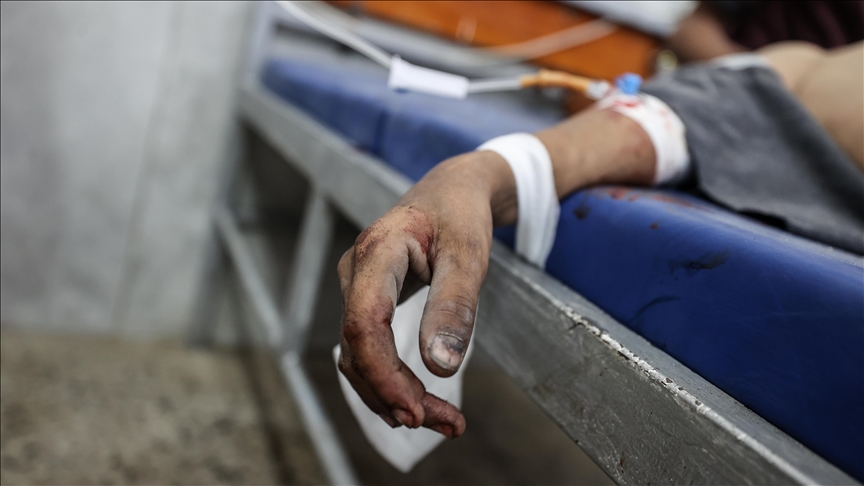WHO says over 40,000 Gazans have life-changing injuries, needing years of rehabilitation
UN Health agency warns health system near collapse, with one-third of rehab services partially functioning
 Palestinians injured in the Israeli attacks are brought to al-Shifa Hospital for treatment in Gaza City, Gaza on September 29, 2025.
Palestinians injured in the Israeli attacks are brought to al-Shifa Hospital for treatment in Gaza City, Gaza on September 29, 2025.
GENEVA
Nearly 42,000 people in the Gaza Strip have sustained life-changing injuries since Oct. 7, 2023, according to a new World Health Organization (WHO) report that was released Thursday.
One in four of the injured are children, said WHO, noting that at least 5,000 people have undergone amputations. Severe injuries include more than 22,000 to arms and legs, over 2,000 spinal cord injuries, 1,300 brain injuries, and over 3,300 major burns, the report found. Complex facial and eye injuries, particularly for those awaiting evacuation, were also highlighted as a growing source of disability and stigma.
The report warned that Gaza's health system is on the brink of collapse, with only 14 of 36 hospitals partially functional and less than one-third of pre-war rehabilitation services operating. Despite thousands of amputations, Gaza has just eight prosthetists able to produce and fit artificial limbs, it stressed.
The rehabilitation workforce has been decimated, with at least 42 specialists killed as of September 2024, said the WHO.
"Rehabilitation is vital not only for trauma recovery but also for people with chronic conditions and disabilities," said Richard Peeperkorn, WHO representative in the occupied Palestinian territory. He added that displacement, malnutrition and the lack of psychosocial support are compounding the crisis.
The UN agency called for urgent protection of the health care system, unrestricted entry of medical supplies and an immediate ceasefire.
"The people of Gaza deserve peace, the right to health and care, and a chance to heal," it said.
Peeperkorn urged international action. "First, we need many more countries to accept patients. Second, equally important, maybe even more important, is the restoration of the West Bank and East Jerusalem medical referral pathway."
He said the report, covering January to September 2025, is "much more extensive" than earlier findings. "What I've witnessed in Gaza, I've never witnessed before."
He noted conditions before Israel's relentless destruction of the enclave. "People always say, 'Oh, the health system was actually very poor.' No, it was not that poor. I don't say it was great. ... But overall, the systems were working much better than you would actually imagine."
"The health indicators in Gaza, West Bank, were actually better than a lot of the neighboring countries," he added.
Peeperkorn has concerns about the surge in psychological trauma. "We estimate that the number of people in Gaza requiring urgent mental health and psychosocial support has more than doubled … over a million people today, which will need some kind of support."
He underscored that before the onslaught, Gaza had "six community-based mental health centers and one psychiatric hospital," but today "those centers and the psychiatric hospital are not functioning anymore."
"I think that probably no one in Gaza is not affected by what have happened, what is currently still happening," said Peeperkorn.
*Merve Aydogan contributed to this report.
Anadolu Agency website contains only a portion of the news stories offered to subscribers in the AA News Broadcasting System (HAS), and in summarized form. Please contact us for subscription options.







